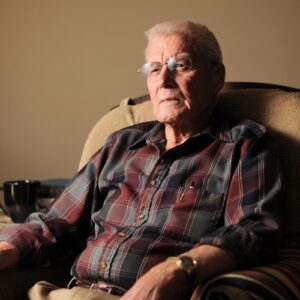Senior/Geriatric Bipolar FAQs
What is Senior/Geriatric biploar?

Research suggests that older adults with bipolar disorder often experience more frequent episodes. They may also experience more depressive episodes and spend less time in manic or hypomanic states.
With mania, they may experience less severe manic symptoms and fewer psychotic features. Mood shifts in bipolar disorder can lead to distinct episodes that are defined as/referred to as:
- Mania: a drastically elevated or “high “mood
- Hypomania: an elevated state that’s not as extreme as mania
- Depression: a “low “mood
Symptoms that older adults with bipolar disorder often experience:
- more frequent episodes
- more depressive episodes and less time spent in manic or hypomanic states
- less severe manic symptoms and fewer psychotic features with mania
- new symptoms, such as irritability and poor cognition
- lower risk of suicide, although this may be due to survivorship bias
- resistance to treatment options, such as certain medications
- bipolar disorder may speed up aging and contribute to cognitive/mental decline.
Here at QCPGA, we are very aware that every undesired behavior exhibited by your elderly family member is NOT Dementia? We train our team to know the difference and to remain mindful that if the patient, client or person you’re assisting has Bipolar at age 65, it’s assured they still have Bipolar at age 85 and would better justify a spontaneous decline or aggressive behavior.
WE AT QCPGA CAN PROVIDE SUPPORT WITH ALL THE CONCERNS.
Simply Call: 470-967-0898
